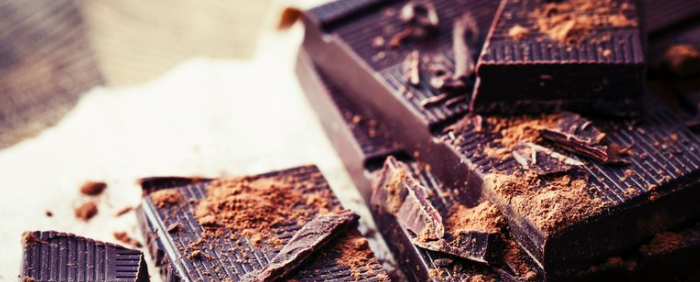
The following foods will help you fight the symptoms of PMS.
Eat well to suffer less
Irritability, mood swings, depression, anxiety, impulsiveness, the feeling of losing one’s head, fatigue, loss of attention, bloating and pain, how many of us are afflicted month after month with these detestable symptoms! Fortunately, there are solutions, some of which are surprisingly effective.
According to the results of studies, the symptoms of PMS could indicate that the nervous system is depressed. The foods we offer here (along with recipes concocted by Pleasures Health) will help you fight your symptoms, improve your immune function and, in general, feel better, whatever their intensity.
Chocolate
“There’s a good reason to crave certain foods, including chocolate, at this point in the cycle,” says Nathalie Lussier, who teaches raw food in Toronto. “Chocolate releases endorphins that exert a calming effect and, as a result, relieve anxiety. In addition, it is rich in magnesium, “a mineral that improves mood and prevents water retention (not to mention the weight gain that accompanies).
Health carbohydrates
Complex carbohydrates have the effect of reducing depression, mood swings and irritability associated with PMS, as well as preventing simple carbohydrate cravings. “They allow tryptophan to cross the blood-brain barrier, beyond which it will be converted into serotonin, a neurotransmitter that acts positively on mood,” says Susan Biali, doctor and author of Live a Life You Love! 7 Steps to a Healthier, Happier, More Passionate You (Beaufort Books, January 2010). Depression, fatigue and insomnia can result from insufficient serotonin production.
Opt for complex carbohydrates (whole grains, legumes, nuts and other nuts, etc.) instead of simple carbohydrates (white flour, rice and sugar). These cause a rapid rise in energy, followed by a sudden fall, which disrupts the mood. Here are some recipes:
Foods rich in calcium
Foods rich in calcium, such as milk and fortified soymilk, can relieve most PMS symptoms, including mood swings, bloating, irritability and cramps. “Chronic calcium deficiency in many women is thought to be the result of hormonal changes that occur in the second half of the menstrual cycle,” says Susan Biali. Hence the importance of consuming foods that are rich or supplements.
However, to meet your needs, it is best to take calcium in adequate amounts every day, rather than sticking to the last two weeks of the cycle. Apart from dairy products and soymilk, they are found in almonds, sardines, canned salmon (eat bones and bone) and kale.
Foods rich in magnesium
According to Susan Biali, many SPM studies emphasize the importance of eating foods that are rich in magnesium, such as almonds with their skin. Magnesium promotes muscle relaxation at the cellular level and stabilizes hormone levels. In addition, it relieves irritability, tension and cramps. Green leafy vegetables such as spinach, as well as beans, lentils, nuts and other nuts, and seeds are good sources.
Foods rich in magnesium
According to Susan Biali, many SPM studies emphasize the importance of eating foods that are rich in magnesium, such as almonds with their skin. Magnesium promotes muscle relaxation at the cellular level and stabilizes hormone levels. In addition, it relieves irritability, tension and cramps. Green leafy vegetables such as spinach, as well as beans, lentils, nuts and other nuts, and seeds are good sources.
Foods to avoid
The list of anti-PMS foods would not be complete without mentioning those that should be avoided. Salt is probably the enemy number one to slaughter because, in high doses, it causes sensitivity and swelling of the breasts, bloating and water retention. Be wary of some foods that contain large amounts, including some canned soups, soy sauce, cold cuts, industrial snacks, and frozen meals.
Experts at the Mayo Clinic also recommend avoiding caffeine from coffee, tea and soft drinks, and reducing alcohol consumption: these two categories of beverages disrupt mood and affect energy. The ephemeral sense of well-being they bring can not in any way compensate for the long-term discomfort of PMS.